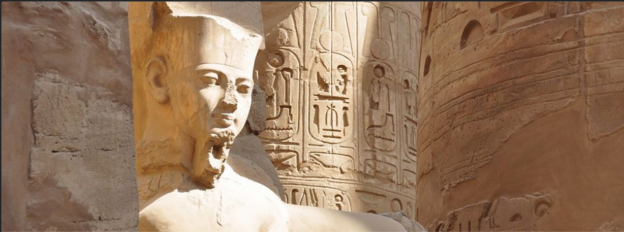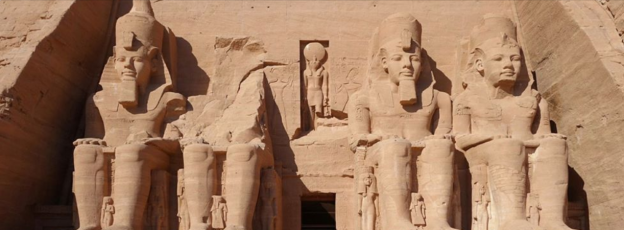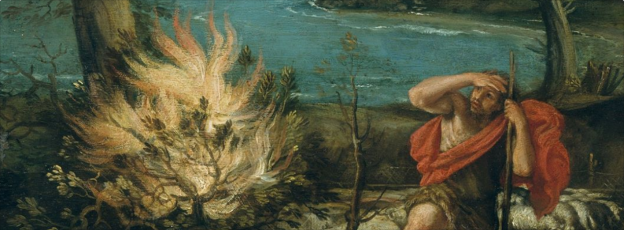Summary
Many years ago I visited the glaciers on the South Island’s West Coast. You can walk right up to the terminus of the glaciers, where bits of ice calve off and crash down to the ground below. Warning signs tell you to keep away from the glacier face, in case a falling rock of ice strikes you. Unfortunately, some people ignore these signs, and pay with injury or death.
God is acting through Moses and Aaron to free his people from slavery in Egypt. In this passage, Moses and Aaron return to Pharaoh’s court to demand he free the Israelites. There, Moses and Aaron demonstrate a warning sign to Pharaoh and Egypt, one Pharaoh tragically ignores. The serpent sign authenticates the message of Moses and Aaron, and warns that God will overcome any who oppose him.
Our passage explained
v8-10
In verses six and seven of chapter seven, we read that Moses and Aaron obeyed God and spoke again to Pharaoh. As they prepared to go to a second audience with Pharaoh, God speaks to both of them, warning them that Pharaoh will say to them “Prove yourselves by working a miracle” (vv.7-8). Since they are claiming to speak on behalf of God, Pharaoh asks them to demonstrate that God exists, and that he should listen.
God wants to make clear that he is coming to free his people, and so he tells Moses and Aaron to “take your staff and cast it down before Pharaoh, that it may become a serpent” (v.8). This sign was not new to Moses, who had seen God work this sign at the Burning Bush (4:3). But it demonstrated God’s power to turn a “dead” part of Creation (a stick) into a living creature.
Moses and Aaron are faithful to God’s command. They went to see Pharaoh “and did just as the Lord commanded. Aaron cast down his staff before Pharaoh and his servants, and it became a serpent” (v.10) just as God predicted and commanded. With no trickery on Moses’ and Aaron’s part but only God’s divine power, the staff becomes a serpent, authenticating God’s messengers to Pharaoh and his advisors.
v11-13
At this point, any sensible leader should have recognised that the Creator God was speaking through Moses and Aaron, and listening was a sensible idea. But Pharaoh does not react this way. “Then Pharaoh summoned the wise men and the sorcerers … the magicians of Egypt” (v.11).
Those summoned are not bureaucrats but magician-priests. Much as Nebuchadnezzar had a variety of magicians and sorcerers in his Court (Daniel 2), so too Pharaoh called on the educated elite of his society, who were also priests to the many Egyptian gods. These men preserved occultic knowledge in their society.
Pharaoh’s calling of the magician-priests shows he views this as a contest between religions, not just between nations. The serpent sign is a direct attack on the religious system of Egypt, as well as Pharaoh (who had a snake on his crown representing his divine authority).
The magicians of Egypt copy Moses and Aaron’s sign. “By their secret arts… each man cast down his staff, and they became serpents” (vv.11-12). This was likely not a straight repeat of the sign, but a trick that looked the same. One commentator has suggested this was achieved by stunning snakes who would wake up when thrown on the ground.
However the trick was achieved, God’s dominance over the Egyptian gods and their occult magic arts is demonstrated when “Aaron’s staff swallowed up their staffs” (v.12). The supremacy of Moses and Aaron’s sign is shown by the serpent sign consuming the other snakes. There is no “draw” here; God is the decisive winner.
Despite the victory of God through the serpent sign, “Pharaoh’s heart was hardened, and he would not listen to them” (v.13). Pharaoh is committed to his alternative facts, and will not admit God is sovereign over him and Egypt. Thus the stage is set for God’s war against the gods of Egypt.
Our passage applied
Pharaoh’s hardened heart reminds us that signs do not guarantee listening. People sometimes claim that if God existed he would reveal himself, but the signs are already there (Psalm 19, Romans 1). The problem is not the lack of signs, but the stubborn heart. Only God can soften hearts so the signs are heeded.
This passage warns us to heed God’s message and signs. Ignoring God, his message, and the accompanying signs will prove fatal.
We must also watch for the mimicking of true signs. These mimickings of God’s power, whatever the supposed sign or wonder, try to distract and entrance those in the world who are perishing, and even God’s people were it possible. We must discern the message that comes with the signs, and see if they are from God.
But we can be thankful that God overcomes the fake signs of this world. His divine power expressed through his Word and the accompanying signs show that he is at work in the world, saving his people and building his Church. In Christ, we will overcome the world’s enchantments.
Resources
Questions? Please contact us. Inspired? Come and worship with us on Sundays.












